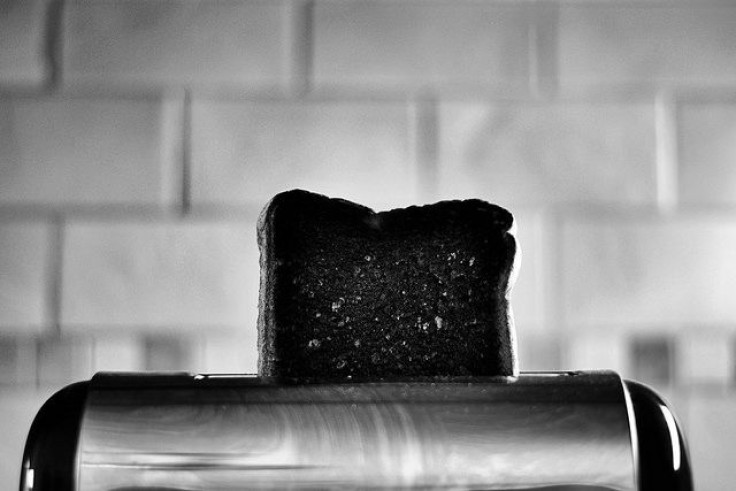Overcooking Starchy Foods Like Potatoes And Bread Increases The Levels Of Acrylamide, A Cancer-Causing Toxin: Study

A hearty, healthy breakfast often contains a piece of toast and maybe some roasted potatoes — both of which provide the carbs necessary to fuel you throughout your day. But while the easiest way to cook these foods is in a toaster or on a pan, a new study suggests we should be more careful with how we do this, as burning the food could produce high levels of a cancer-causing chemical.
The UK’s Food Standards Agency (FSA), a food safety watchdog, measured amounts of acrylamide — a cancer-causing substance — in popular UK breakfast foods and found making these foods even a little crispy could increase their levels and pose health risks. “The risk assessment indicates that at the levels we are exposed to from food, acrylamide could be increasing the risk of cancer.” said Professor Guy Poppy, the FSA’s chief scientific adviser, in a report accompanying the study.
This isn’t the first time acrylamide has been said to increase our risk of cancer. A team of Swedish researchers first discovered the toxin in our food in 2002, and it has been on the Food and Drug Administration’s (FDA) watch list ever since. Acrylamide is created when plant-derived foods, like potatoes and bread, are cooked beyond 120 degrees Celsius (248 degrees Fahrenheit). The high heat causes the amino acid asparagine, water, and sugars found in these foods to combine, which then creates the toxin. Acrylamide is not added to any of these foods but is instead a natural byproduct of the cooking process.
For their study, researchers found that the crispier the food, the higher the levels of acrylamide present in the food. French fries that cooked the longest, and were therefore seriously charred, had the highest levels of acrylamide — 1,052 micrograms per kilogram. The researchers said the least-cooked batch of fries had 50 times less acrylamide levels. When it came to roasted potatoes, those that cooked the longest had about 940 micrograms of acrylamide per kilogram, nearly 80 times higher than the least-cooked batch. Finally, when they cooked the toast, they found the crispiest of pieces had 167 micrograms of acrylamide per kilogram, which was 19 times more than the least-cooked piece.
Though it may be interpreted that the study is telling us to quit eating overcooked food, Poppy says instead we should be more mindful of how long we cook them for. “[W]hen making [fries] at home,” ensure that “they are cooked to a light golden color. ... Bread should be toasted to the lightest color acceptable.”
Scientists haven’t yet established safe levels of acrylamide in food, but both the FDA and FSA are looking into regulations that will set a maximum amount. Until then, hold off on the extra-cooked starchy foods and just make them a little crispy.
Source: Poppy G, et al. Chief Scientific Advisor’s Science Report. Food Standards Agency. 2015.



























